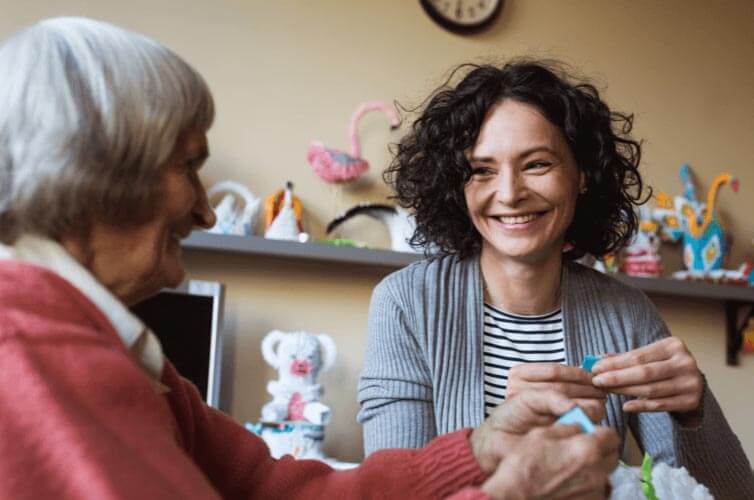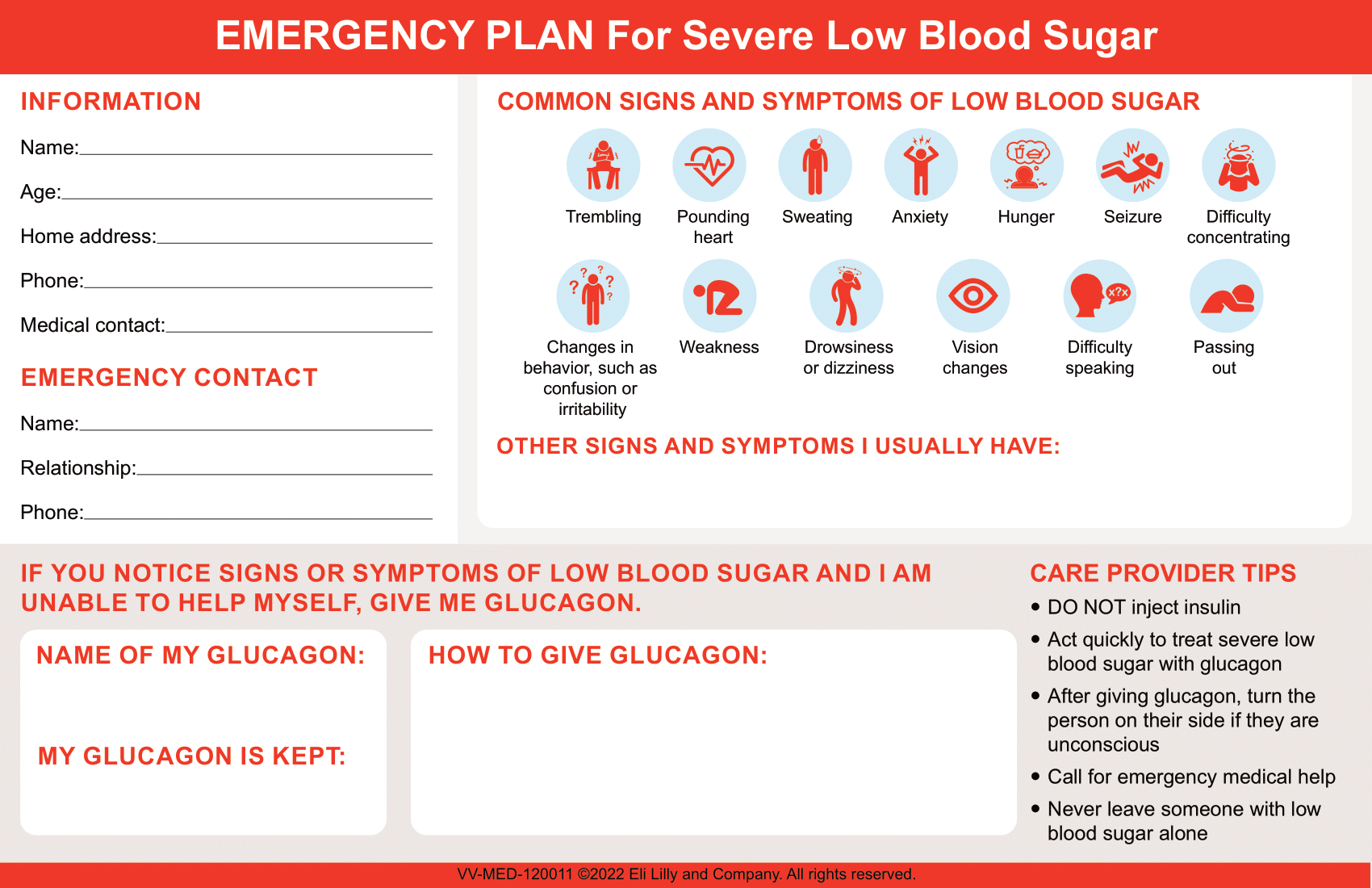
What Caregivers Need to Know
Who Are Caregivers?
Caregivers are the people you are around most often or a member of your care team and can help you if you have a severe low blood sugar event. For example, caregivers may be your loved ones, children, or other family members.
What if I live alone, or if my family lives far away?
If you live alone or your family is not nearby, your caregivers could be:
A neighbor
A coworker
A friend
To figure out who might help you in an emergency, think about the places you usually go and the people you see often.
Organizations in your community may also help you find caregivers.
What Do My Caregivers Need to Know?
Caregivers need to know these 3 things:
- 1What severe low blood sugar is, including the early signs and symptoms.
- Remember: People with diabetes may not realize they are having a severe low blood sugar event, or that they need treatment.
- 2How to check for blood sugar levels, if possible.
- 3Glucagon: when and how to use it, where it is kept, and what to do after it is given.
- Remember: Giving fast-acting carbohydrates by mouth can be dangerous during a severe low blood sugar event, because the person may choke.
All of these items should be included in your emergency plan and shared with your caregivers!
Print out this emergency plan, fill it out, and give copies to your caregivers so they are prepared.
How Do I Ask Someone to Be a Caregiver for Me?
Discussing diabetes and severe low blood sugar doesn’t need to be hard.
The questions below may help you begin talking about caregiving with people close to you.
- Are you willing to help me if my blood sugar drops too low?
- Can I explain the common signs and symptoms you may see me have when my blood sugar is low?
- Can I show you how to help me during a severe low blood sugar event?

Review Your Knowledge
Learn More About Severe Low Blood Sugar
References
- 1Reifegerste D, et al. J Clin Transl Endocrinol. 2016;4:7-12.
- 2Know before the low. Be prepared for low blood sugar. https://www.multivu.com/
players/English/8688551-know-before-the-low/
docs/TipList_1589921095033-1140242936.pdf. Accessed November 21, 2021. - 3Hormone Health Network. Severe Hypoglycemia.
https://www.hormone.org/
diseases-and-conditions/diabetes/
severe-hypoglycemia. Accessed November 21, 2021. - 4
American Diabetes Association. Hypoglycemia (low blood sugar). https://www.diabetes.org/
healthy-living/medication-treatments
/blood-glucose-testing-and-control
/hypoglycemia. Accessed November 1, 2021. - 5
American Diabetes Association. Diabetes Care. 2021;44(1):S73-S84.









